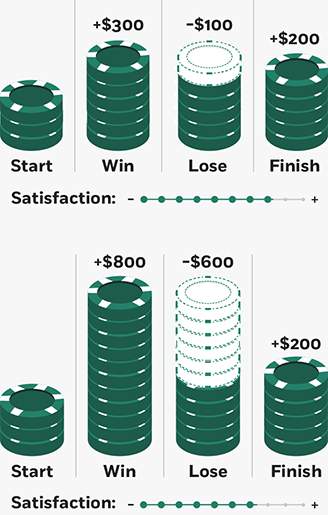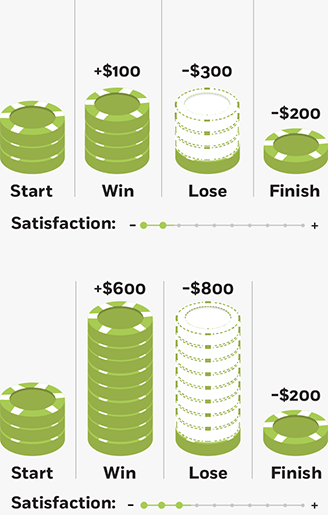
Someone Looks Trustworthy? You May Be Wrong.
But smiling may make others trust you more.
Someone Looks Trustworthy? You May Be Wrong.Suppose that your friend visits a casino. It was a lucky trip—she won $200 at the end of the weekend. But did she win $300, and then lose $100? Or did she win $600, and then lose $400? The answer affects how she feels about her experience, even though her ultimate winnings were the same, research suggests. And understanding why could help people present trade-offs strategically, to nudge others in specific directions.
Chicago Booth’s Abigail Sussman asked study participants to imagine they had been gambling. When they won money overall, they consistently felt better about cases in which the amounts they had supposedly won and lost were smaller in magnitude, even if larger amounts added up to the same amount in the end.
It’s the journey, not just the outcome
Exploring situations that each ended with the same result, researchers find that a gambler’s ups and downs affected participants’ perception of the experience.


This preference reversed when the gambler was unlucky. When participants instead lost money after the gambling weekend, they felt better if they had won and lost larger amounts.
Organizations may be able to use this quirk of human cognition to nudge their customers and stakeholders into making decisions that are more closely aligned with their stated aims, Sussman suggests, indicating that each individual piece of information presented is likely to have an impact. For example, an online dieting site that helps customers count calories may show that a person consumed 3,000 calories in a day and burned 2,800—or could show that a person consumed 200 calories more than he burned. Sussman’s research suggests that when a dieter sees the consumed calories along with those burned, he is more likely to focus on the high-magnitude positive impact of having burned 2,800 calories than on the fact that he was 200 calories short of his goal of weight loss. To better focus him on the end result, Sussman suggests presenting the numbers instead as a single figure of net calories burned.
Abigail Sussman, “Valence in Context: Asymmetric Reactions to Realized Gains and Losses,” Working Paper, July 2016.

But smiling may make others trust you more.
Someone Looks Trustworthy? You May Be Wrong.
You can’t fix all the world’s problems, so pick your battles.
What a Hot Dog Taught Me about Ethical Priorities
A Q&A with Alexander Todorov, the Leon Carroll Marshall Professor of Behavioral Science at Chicago Booth.
You Can Shake a Bad First ImpressionYour Privacy
We want to demonstrate our commitment to your privacy. Please review Chicago Booth's privacy notice, which provides information explaining how and why we collect particular information when you visit our website.